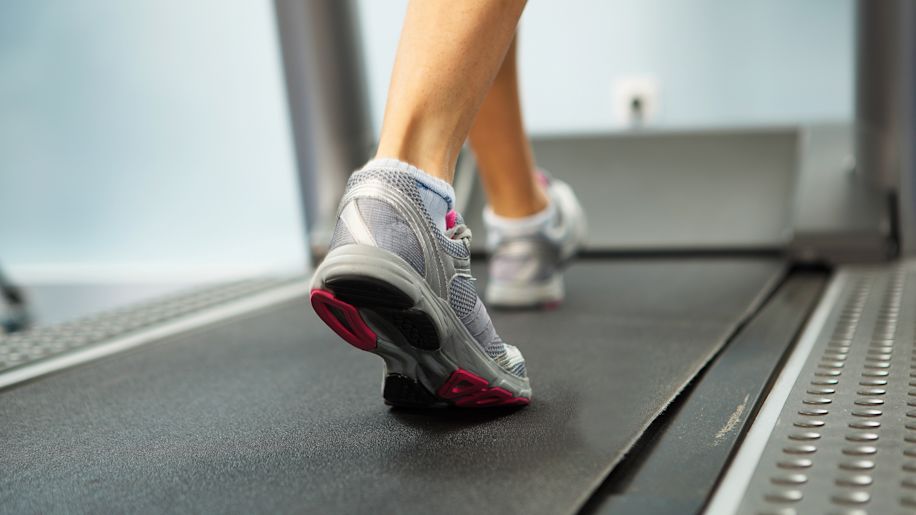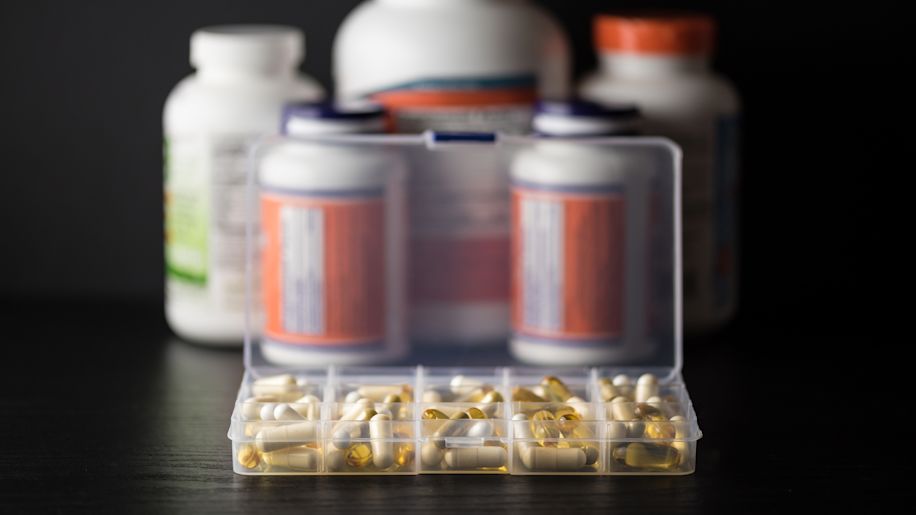Lifestyle changes to help manage ulcerative colitis
Learn strategies to help reduce inflammation, avoid flares, and stay healthy.
Updated on January 30, 2026

Inflammatory bowel disease (IBD) is a common health condition in the United States. Up to 3.1 million people have IBD, according to the Centers for Disease Control and Prevention (CDC).
IBD is a suite of conditions, most notably Crohn’s disease and ulcerative colitis. For reasons that aren’t entirely clear, the body’s own immune system attacks the lining of the digestive tract, leading to chronic diarrhea and abdominal pain.
“About 50 percent of my patients with IBD live normal lives,” says Rajiv Sharma, MD, a gastroenterologist based in Indiana. “Another 35 to 40 percent can live pretty normally, but it definitely affects their lives. They need to know where a bathroom is at all times. For the remainder, it’s debilitating.”
Surgery and medicine can help with IBD, but so can lifestyle changes. Here are six to consider.

Be careful with fiber
“Fiber makes for good colonic health,” says Dr. Sharma. But most people don’t eat enough. The average U.S. adult eats between 15 and 18 grams per day—only about half of what experts recommend.
Some people with IBD need to be mindful of their fiber intake. Fiber may worsen symptoms, especially if you have a narrowing of the bowels from scarring, known as a stricture. That’s because fiber—particularly a type called insoluble fiber—could increase gas and bloating, which are already problems for people with IBD.
During flares, your healthcare provider (HCP) may recommend following a low-fiber diet for a time. People whose IBD is in remission—meaning they aren’t experiencing symptoms—should eat their full daily recommended value unless they have a stricture. More than half of people with Crohn’s disease develop a stricture. They may be asked to follow a low-fiber diet permanently.
A good rule of thumb: Talk to your HCP about how much fiber you should eat, given your level of disease activity and bowel changes.

Shoot for at least seven hours of sleep each night
Getting enough sleep is especially important when you have IBD because sleep reduces inflammation, the “I” in IBD. “If you sleep well, it reduces flares,” says Sharma.
Most adults need seven to nine hours of sleep per night. Achieving this can be difficult for people with IBD. Symptoms like abdominal pain and diarrhea can wake you up, and the disease itself may disrupt the sleep cycle. Practice good sleep hygiene by:
- Avoiding electronics at least 30 to 60 minutes before bedtime
- Going to bed and waking up at the same time each day
- Avoiding long naps
- Not watching TV or reading in bed
- Keeping away from caffeine past the early afternoon
- Exercising as your symptoms allow

Work out as well as you’re able
“People with IBD who exercise just generally do better. They have lower stress levels and fewer symptom flares,” Sharma says. Exercise not only keeps your body strong, but it clears your mind, reduces stress and, in the long term, can help limit inflammation.
It’s not just the anti-inflammatory effect that benefits people with IBD. Physical activity can help cut down on problems that tend to crop up alongside IBD, as well. IBD is linked to a higher risk of osteoporosis and less-dense bones; exercise has been shown to increase bone mass in people with Crohn’s disease.
IBD is also associated with ankylosing spondylitis, a form of arthritis that affects the spine and vertebrae (bones of the spine). Exercise can improve spine flexibility and reduce vertebral pain.

Consider probiotics
One possible cause or symptom trigger of IBD is an imbalance in the bacteria that live in the digestive tract. Probiotics are organisms that can restore the bacterial population in the gut to healthy levels. They are obtained through food or dietary supplements.
“I have patients where no medication works on them, but who experience less pain when they take probiotics,” says Sharma. There is some evidence that certain probiotics can help with ulcerative colitis. There doesn’t appear to be much benefit, if any, in taking probiotics for Crohn’s disease.
Speak with your HCP before starting on any probiotics.

No drinking, no smoking
No one should smoke, but people with IBD have extra incentive to quit. Smoking is tied to an increased risk of developing Crohn’s disease, and can worsen the condition. “Smoking induces more scarring in the colon, which is what a stricture is,” says Sharma.
Perhaps surprisingly, smoking has been linked to a decreased risk of ulcerative colitis—but that’s not a reason to light up. Research suggests smoking also harms the immune system and alters the balance of gut bacteria. “Smoking is carcinogenic, and people with IBD are already at increased risk of colorectal cancer,” Sharma adds.
You’ll also want to limit or avoid alcohol, especially during a flare and if it aggravates your symptoms. Some research has tied drinking to worse symptoms and more flare-ups.

Avoid or limit FODMAPs
FODMAPS are carbohydrates that are poorly absorbed in the intestines and fermented by gut bacteria. This leads to bloating, gas, abdominal pain, or diarrhea. A low-FODMAP diet is usually associated with treating irritable bowel syndrome (IBS, not to be confused with IBD). But there is some evidence avoiding FODMAPs can help ease IBD symptoms that are similar to those of IBS.
FODMAP foods include:
- Asparagus
- Beans
- Onions
- Garlic
- Wheat
- Rye
- Dairy and soy milk
- Cashews
A low-FODMAP diet is restrictive and meant to be short-term. Experts, including Sharma, agree that a low-FODMAP diet should be started under the guidance of a nutritionist. “I always work closely with a dietitian,” says Sharma. “If you’re my patient, you’re seeing a dietician. That goes for any condition. To heal someone all the way you’ve got to fix the diet.”

Centers for Disease Control and Prevention. Inflammatory Bowel Disease (IBD): IBD Facts and Stats. June 21, 2024.
Merck Manual Consumer Version. Overview of Inflammatory Bowel Disease (IBD). January 2024.
NIH: National Institute of Diabetes and Digestive and Kidney Diseases. Overview of Inflammatory Bowel Disease (IBD). July 2024.
USDA Food Surveys Research Group. Fiber intake of the U.S. population. September 2014.
Crohn's & Colitis Foundation. Diet, Nutrition, and Inflammatory Bowel Disease. 2013.
Pituch-Zdanowska A, Banaszkiewicz A, Albrecht P. The role of dietary fibre in inflammatory bowel disease. Prz Gastroenterol. 2015;10(3):135-41.
Kinnucan JA, Rubin DT, Ali T. Sleep and inflammatory bowel disease: exploring the relationship between sleep disturbances and inflammation. Gastroenterol Hepatol (N Y). 2013 Nov;9(11):718-27.
Centers for Disease Control and Prevention. Sleep: About Sleep. May 15, 2024.
Ali T. Sleep and Inflammatory Bowel Disease. Gastroenterol Hepatol (N Y). 2014 Nov;10(11):748-751.
MedlinePlus. Exercise and Physical Fitness. Last updated May 8, 2020.
Woods JA, Wilund KR, Martin SA, Kistler BM. Exercise, inflammation and aging. Aging Dis. 2012 Feb;3(1):130-40.
Elewaut D. Linking Crohn's Disease and Ankylosing Spondylitis: It's All about Genes! PLoS Genet. 2010, 6(12): e1001223.
Bilski J, Brzozowski B, et al. The role of physical exercise in inflammatory bowel disease. Biomed Res Int. 2014;2014:429031.
Halfvarson, J., Brislawn, C., Lamendella, R. et al. Dynamics of the human gut microbiome in inflammatory bowel disease. Nat Microbiol 2, 17004 (2017).
Hemarajata P, Versalovic J. Effects of probiotics on gut microbiota: mechanisms of intestinal immunomodulation and neuromodulation. Therap Adv Gastroenterol. 2013 Jan;6(1):39-51.
Chapman TM, Plosker GL, Figgitt DP. VSL#3 probiotic mixture: a review of its use in chronic inflammatory bowel diseases. Drugs. 2006;66(10):1371-87.
Derwa Y, Gracie DJ, et al. Systematic review with meta-analysis: the efficacy of probiotics in inflammatory bowel disease. Aliment Pharmacol Ther. 2017 Aug;46(4):389-400.
Merck Manual Professional Version. Overview of Inflammatory Bowel Disease. Last review/revision January 2022.
Merck Manual Professional Version. Drugs for Inflammatory Bowel Disease. Last review/revision January 2022.
Lichtenstein L, Avni-Biron I, Ben-Bassat O. Probiotics and prebiotics in Crohn's disease therapies. Best Practice & Research Clinical Gastroenterology. Volume 30, Issue 1, February 2016, Pages 81-88.
Wilkins T, Sequoia J. Probiotics for Gastrointestinal Conditions: A Summary of the Evidence. Am Fam Physician. 2017;96(3):170-178.
Mayo Clinic. Inflammatory Bowel Disease. December 18, 2024.
Chang CW, Wong JM, et al. Intestinal stricture in Crohn's disease. Intest Res. 2015 Jan;13(1):19-26.
Parkes GC, Whelan K, Lindsay JO. Smoking in inflammatory bowel disease: Impact on disease course and insights into the aetiology of its effect, Journal of Crohn's and Colitis, Volume 8, Issue 8, 1 August 2014, Pages 717–725.
Kim ER, Chang DK. Colorectal cancer in inflammatory bowel disease: the risk, pathogenesis, prevention and diagnosis. World J Gastroenterol. 2014 Aug 7;20(29):9872-81.
Rozich JJ, Holmer A, Singh S. Effect of Lifestyle Factors on Outcomes in Patients With Inflammatory Bowel Diseases. Am J Gastroenterol. 2020 Jun;115(6):832-840.
Swanson GR, Sedghi S, et al. Pattern of alcohol consumption and its effect on gastrointestinal symptoms in inflammatory bowel disease. Alcohol. 2010 May;44(3):223-8.
Piovezani Ramos G, Kane S. Alcohol Use in Patients With Inflammatory Bowel Disease. Gastroenterol Hepatol (N Y). 2021 May;17(5):211-225.
Fedewa A, Rao SS. Dietary fructose intolerance, fructan intolerance and FODMAPs. Curr Gastroenterol Rep. 2014 Jan;16(1):370.
Gibson PR. Use of the low-FODMAP diet in inflammatory bowel disease. J Gastroenterol Hepatol. 2017 Mar;32 Suppl 1:40-42.
Monash University. Your complete on-the-go guide to the FODMAP Diet. Accessed September 7, 2022.
Knight-Sepulveda K, Kais S, et al. and Inflammatory Bowel Disease. Gastroenterol Hepatol (N Y). 2015 Aug;11(8):511-20.
Gibson PR. Use of the low-FODMAP diet in inflammatory bowel disease. J Gastroenterol Hepatol. 2017 Mar;32 Suppl 1:40-42.
Featured Content

article

article

article

article
